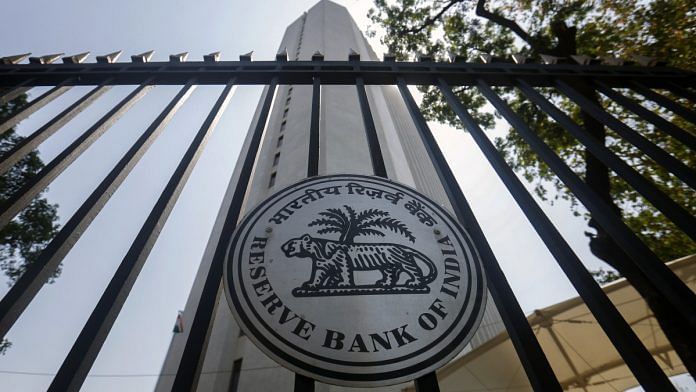 Keep your powder dry
Keep your powder dry
Duvvuri Subbarao | Former governor of the Reserve Bank of India
The Indian Express
Drawing parallels with the 1982 film ‘Sophie’s Choice’, Subbarao argues that the government is facing a similar dilemma of having to choose between lives and livelihoods. Citing reports by The Economist, Subbarao says while India’s actions have been the most stringent, its economic relief package has been the smallest, which he thinks comes from “fear of spooking the market.” He argues that the government must “abandon its fiscal reticence, and borrow more and spend more,” with the RBI funding government borrowing by printing money. He notes, the government should fix an upper limit for fiscal deficit, and spend up to 2 per cent, in case there is another virus later in the year.
 Covid-19: What India must do next
Covid-19: What India must do next
Anurag Agrawal | Physician-scientist and director, CSIR Institute of Genomics and Integrative Biology
Hindustan Times
Agrawal states that this fight against coronavirus “will be won by smart data-driven defence, coupled with strategic offence.” In India, he notes that testing is low. Further, he notes, “The determination of the five classes (who is infected, likely to be infected, exposed, unexposed, or recovered) is not yet clear, and supply chains of protective gear and hospital equipment are thin and fraying.” Moreover, research is yet to launch an all-out offensive against the virus. He adds, “While the medical side defends with what they have, the research side must support them with what they need.”
 The pandemic and the contours of a health response
The pandemic and the contours of a health response
J.V.R. Prasada Rao | Former Health Secretary, Government of India
The Hindu
On resuming normalcy post lockdown, Rao suggests, “Central and State Governments should plan to adopt a public health approach to address the situation and use days ahead to ready with the strategy and tools for rolling it out.” Addressing the weak healthcare system, he says that those with mild symptoms should stay home and only those who have been severely affected should be hospitalised. He urges for rapid testing and counselling to ease the pressure on doctors and nurses and states, “Only a measured public health approach with community participation will help the government in ensuring a sustained response to stem its tide.”
 Halting the march of rumours
Halting the march of rumours
Rajeev Bhargava | Professor, Centre for the Study of Developing Societies, Delhi
The Hindu
From the Sikh riots in 1984 to the Jews during holocaust, rumours always abound in times of crisis, notes Bhargava. It is no different now as the country faces a pandemic. He defines a rumour as “a useful half-truth with strong emotional overtones that spreads fast, gripping individual minds to create a common consciousness and agency, often with grave social consequences”. When there is an information void or overload and emotional anxiety is on everyone’s mind, rumours spread best. Tackling this is just as important as fighting the virus and Bhargava says that for this “community leaders and democratically elected office holders must play a key role in preventing dangerous rumours” by having regulatory laws that check rumours.
 The helping hand RBI can lend to tide over exceptional times
The helping hand RBI can lend to tide over exceptional times
Niranjan Rajadhyaksha | Member, academic board of the Meghnad Desai Academy of Economics
Mint
Rajadhyaksha focuses on how the RBI will have to step in to support fiscal expansion in these times and buy government bonds by creating new money. Indian fiscal laws don’t allow RBI to directly purchase bonds from the government and can trade in bonds to pursue monetary policy strategy only through open market operation by buying or selling from banks directly. However, this law can be set aside during a calamity, reminds Rajadhyaksha. In terms of an exit strategy, the RBI can reduce the holdings of international bonds ot foreign exchange reserves once the economy stabilises. It can also use foreign exchange to gain a “geopolitical edge” over China.
 Emerging from shadows of a lockdown
Emerging from shadows of a lockdown
Paran Balakrishnan | Journalist
The Hindu Business Line
Balakrishnan says we must learn from existing models, like China, to imagine a post-lockdown world – one that may still involve social distancing until a vaccine arrives about 18 months from now. Wuhan, which witnessed a 76-day lockdown, is a good example. After Modi staggers relaxation of restrictions, industries and factory operations will also have to change. Central Government ministries are suggesting letting factories open early if they offer “single entry points for workers” and “sufficient” social-distancing space, possibly a single shift for 20 per cent workers. Spain, Austria, France, Singapore are relaxing restrictions and opening up industry. In India, the Kerala government is looking at a district-by-district loosening of lockdown based on extremely strict conditions.
Today’s Editorials
The Indian Express: The daily notes that the extension of the lockdown is going to affect people from various sections of society differently. Migrant workers and daily wage earners need help more than compassion, writes Express. It hopes that the “necessary and blunt instrument in the fight against coronavirus” will be made sensitive to the plight of these sections of the society by including financial relief and a calibrated resumption of economic activity.
The Times Of India: TOI says that the government has shown that it is not wavering on its aggressive response to the coronavirus threat by extending the lockdown. The extension buys further time to expand testing and augment health infrastructure like ventilators, beds and personal protective equipment, notes the paper. However, recession appears a distinct possibility with the extension of the lockdown, it writes.
The Hindu: The daily says that the extended lockdown is a small window within which an orderly exit must be planned. The Centre’s lockdown is the most rigorous globally, but it has witnessed severe gaps in implementation. The PM also must make sure that his promise to make full use of rabi harvest translates into action and the produce reaches the market, it writes. There can not be a return to normal overnight therefore the governments must plan for a sequential restoration of activity.
Hindustan Times: The daily analysed PM Modi’s address to the nation and called it a ‘mixed bag’. It says that along with the lockdown, India should have announced a comprehensive stimulus for the economy just as other countries have. It should have outlined specific measures for business that are becoming increasingly unviable. HT notes that it was not enough for the PM to acknowledge that he was aware of these difficulties but it was time to show how the Centre plans to help specific sectors, vulnerable citizens, and state governments in this battle.



